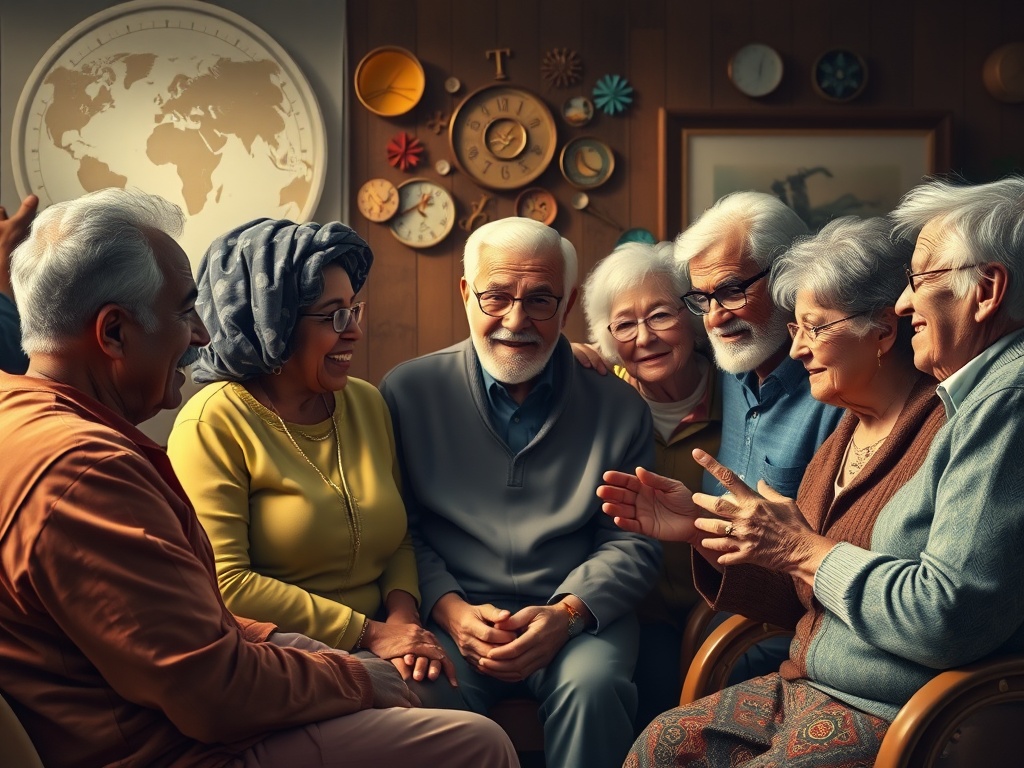Raging Against the Dying of the Light

“Do not go gentle into that good night.” These iconic words from Dylan Thomas, inspired by the poet’s own father, should resonate with every elderly individual across the nation, urging them to “rage, rage against the dying of the light.” And rage, we must. Daily, I find myself seething over the treatment of the older generation in this country. A recent report published by MPs aligns with my frustrations, asserting that Britain is trapped in a “pervasively ageist culture” where older individuals face discrimination in workplaces, the media, and in accessing essential public services.
The report sharply criticizes the portrayals of baby boomers—those born between 1946 and 1964, now entering their 60s and 70s—as either frail or living lavishly at the expense of their children and grandchildren. According to the narrative, we are depicted as “wealth-hoarding boomers” comfortably residing in homes we own, while the younger generation struggles to climb the housing ladder and barely makes ends meet on meager incomes. This perception is misleading.
In reality, today’s younger generation is not as disadvantaged compared to my youth; they simply desire everything sooner and with less effort. When their expectations aren’t met, they sulk over their extravagant £15 cocktails. They seem to feel entitled to the privileges my generation had to toil hard for. We anticipated little, and indeed, little was handed to us. The truth is, the difficulty of life hasn’t vanished—it persists.
Having reached the state pension age last November, I’m considered a boomer. However, I do not own a home and will have to work until my last breath just to get by. While I don’t lament this (I genuinely love my work as a writer and intend to continue until I can no longer do so), many others are unable to work due to various reasons like ill health, caregiving responsibilities, or a lack of job opportunities, leaving them to struggle.
I currently reside in rented accommodation that I can barely afford to heat. Daily, I juggle my time between writing as a TV critic and anxiously watching the smart meter, which recently informed me that I spent a staggering £13.46 on gas and electricity in just one day. How is this possible? I heated a mere half-tin of Heinz tomato soup under a solitary lightbulb! I’m even contemplating buying a torch to navigate my dark, chilly home.
The report also draws attention to the harmful stereotypes perpetuated in the media and advertising. Indeed, the representation is disheartening. Have you noticed the TV commercials targeting my demographic? For every ad prompting me to rescue a sorrowful dog or donkey, there are countless others urging me to prepare for my inevitable demise. If I’m not planning my funeral, I’m bombarded with products to alleviate my discomfort during what the media suggests is an increasingly arduous journey toward death.
Caroline Abrahams, charity director at Age UK, notes that ageism has become so entrenched that younger individuals often “do not even recognize it,” while older people feel “belittled.” This is a sentiment I frequently encounter, even though I currently live in Wales, a region with a dedicated older people’s commissioner and a national strategy aimed at improving the lives of seniors.
Efforts have emerged to encourage older individuals to socialize, including free classes aimed at fostering interaction. While these initiatives are beneficial, they do little to alter the broader public perception. The core issue remains straightforward: respect—or rather, the lack of it.
Throughout my life, I’ve lived in various global cities—Paris, Los Angeles, New York, and several regions in Spain—and I’ve noticed a stark contrast in the respect afforded to older individuals abroad compared to Britain. In the United States, for instance, there is a genuine eagerness to learn from those who possess a wealth of experience. Although ageism exists in Hollywood, older individuals often receive admiration for their life stories and professional journeys.
During my visits to Paris, I’m never treated like a social outcast, nor am I relegated to a seat near the restroom in restaurants. Instead, there’s a level of attentiveness that I rarely experience in the UK. When I order a second or, heaven forbid, a third glass of wine, I’m met with delight rather than disdain. In Paris, I feel valued, not condescended to, and I’m never subjected to the patronizing attitude of “Well done for venturing out today.”
The healthcare systems in countries like Spain and France provide better support for the elderly; in Bulgaria, seniors enjoy free healthcare. While the UK boasts the NHS, how many individuals face death waiting for treatment? Research indicates that older individuals who maintain a positive outlook on aging live, on average, 7.5 years longer than those with a negative perspective. Ironically, it seems that Britain wishes for its elderly to live shorter lives, making it challenging to remain optimistic amidst pervasive prejudice.
Let us hope this report serves as a catalyst for meaningful change. We are still here, refusing to be ignored or marginalized. Let’s embrace life and fight against the narrative that seeks to diminish us.




